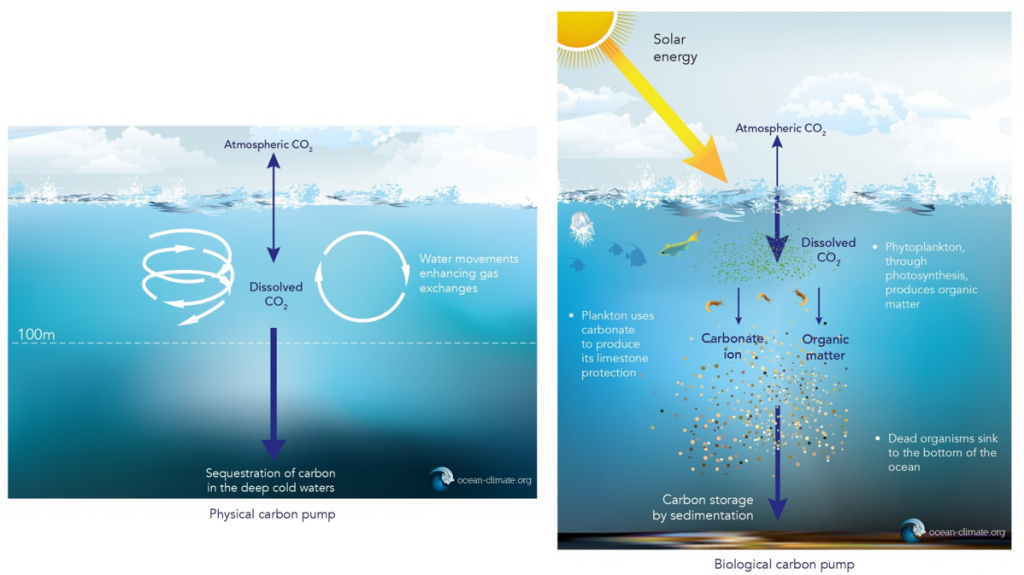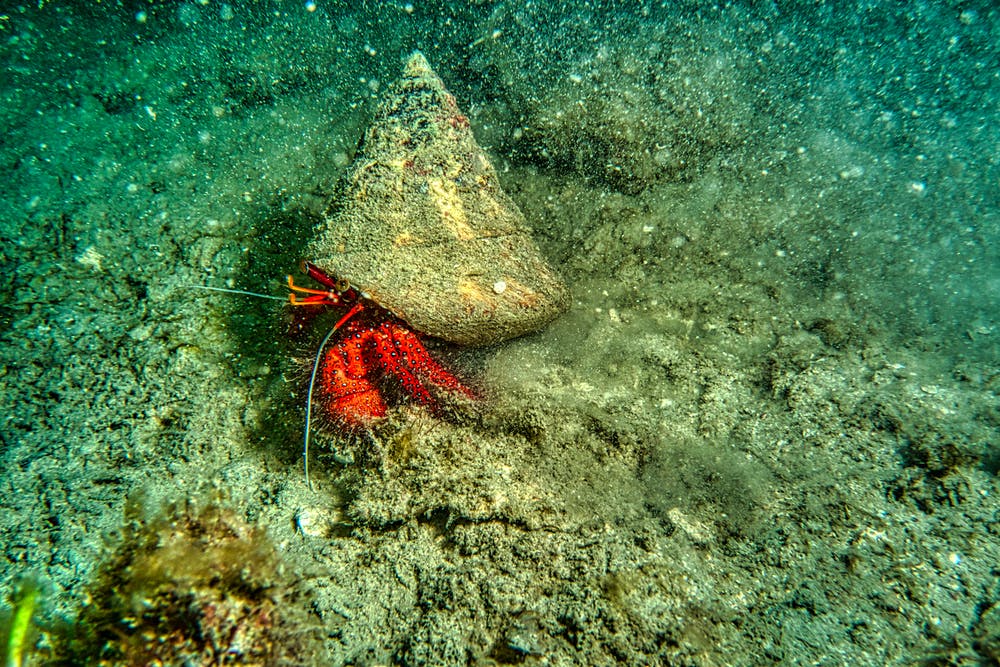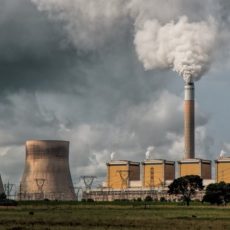
When we think about global warming, our first thought is usually about heat trapped in the atmosphere by greenhouse gases. But the phenomenon of global warming, one of the major symptoms of climate change, is also causing the warming of our oceans. A while ago we explored the rising sea levels — and touched on the reasons and expected impacts. But it’s time to wade deeper into the health of our oceans.
The Amazon Rainforest is often referred to as the Lungs of the Planet, but in reality this enormous forest is only one lung — the oceans are the other one AND the heart. By that I mean, the oceans:
* Provide between 50-80% of the Earth’s oxygen.
* ‘Cleanse’ our atmosphere by absorbing nearly 1/3 of the anthropogenic carbon dioxide (storing more than 50 times that of the atmosphere).
* Absorb about 90% of the global warming from our atmosphere.
* Currents move enormous volumes of water around the globe, which helps control weather systems and is critical to marine life.
In addition, we use the oceans for food and transportation, and they absorb energy directly from the sun, converting that also to heat. So I think it can be agreed upon, then, that the oceans are vital for continued life on Earth.
Let’s quickly discuss how the ocean absorbs and stores CO2. The ocean takes up carbon dioxide through photosynthesis by phytoplankton, as well as by chemistry, i.e. carbon dioxide dissolves in water. A chemical reaction ensues, and carbonic acid is created. Carbonic acid releases hydrogen ions, which combine with carbonate in saltwater to form bicarbonate. This is the form of carbon which is stored. This special skill of our oceans has been incredibly impactful for us in reducing the level of global average temperature rise we’ve so far experienced.

So the oceans absorbing the warming caused by anthropogenic greenhouse gas emissions seems like a good thing, right? Well, yes, we are right to be thankful. But there are a number of pretty severe downsides:

1. Increased carbon dioxide in the oceans is leading to higher acidity of the waters. This leads to damage to corals (increasing their susceptibility to bleaching), shells/hard skeletons (think crabs and clams), and some types of plankton — all of which can have devastating impacts on coastal ecosystems.
2. Higher water heat content brings a decrease in the ability to absorb CO2, which means the current rate at which we’re being ‘saved’ by the oceans is going to slow, dramatically.
3. Warmer waters leads to a decrease in the ability of phytoplankton to photosynthesize, thereby reducing oxygen production, which is one main factor in the current deoxygenation of the oceans, with more than 500 areas of ‘dead zones’, where limited life can exist.
4. Warmer waters inhibit the solubility of oxygen, so we have deoxygenation occurring (for every 1 degree of warming in the water the ocean loses 2% O2). This means that even were the photosynthesis to continue unabated, we would still be experiencing an oxygen level decline.
5. Ocean heat content increasing will lead to sea level rise for two reasons: a) water expands slightly when it’s warmed and b) warmer waters will flow around ice caps, leading to melting ice and higher water levels.
6. Warmer waters affect the global currents, which impacts innumerable marine life based on their migration pathways and availability of their food sources.
7. The speed at which the ocean’s currents move appears to be getting faster, leading to warmer water taken to higher latitudes, which in turn leads to shifting weather patterns (Note: the authors of this study acknowledge that further study is required).
8. Climate velocity (the likely speed and direction an ocean species shifts) moves fast at the surface in warmer water, putting biodiversity in shallow waters at risk.
It seems abundantly clear that we are putting our oceans, arguably our lifeblood, at inordinate risk. If the oceans were unable to perform their life-giving tasks, and if the marine creatures living within perished, all due to sucking our excessive emissions from the atmosphere, it would be a travesty beyond words.
So what can we do?
We must act in every way we can to reduce our own personal carbon emissions. Petition our governments, day and night, to remove the source – fossil fuels are simply not a viable energy option any longer. And vote in every election you’re permitted, to try to bring positive climate action as quickly as possible.




